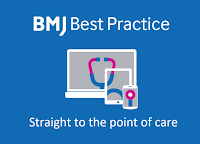Quality/Credibility of eHealth Information and Trust Issues
I thought people might find the article below quite useful.
Koren Hyogene Kwag, Marien González-Lorenzo, Rita Banzi, Stefanos Bonovas, Lorenzo Moja
J Med Internet Res 2016 (Jan 19); 18(1):e15
HTML (open access): http://www.jmir.org/2016/1/e15/
PDF (members only): http://www.jmir.org/2016/1/e15/PDF
Background: The complexity of modern practice requires health professionals to be active information-seekers. Objective: Our aim was to review the quality and progress of point-of-care information summaries—Web-based medical compendia that are specifically designed to deliver pre-digested, rapidly accessible, comprehensive, and periodically updated information to health care providers. We aimed to evaluate product claims of being evidence-based. Methods: We updated our previous evaluations by searching Medline, Google, librarian association websites, and conference proceedings from August 2012 to December 2014. We included Web-based, regularly updated point-of-care information summaries with claims of being evidence-based. We extracted data on the general characteristics and content presentation of products, and we quantitatively assessed their breadth of disease coverage, editorial quality, and evidence-based methodology. We assessed potential relationships between these dimensions and compared them with our 2008 assessment. Results: We screened 58 products; 26 met our inclusion criteria. Nearly a quarter (6/26, 23%) were newly identified in 2014. We accessed and analyzed 23 products for content presentation and quantitative dimensions. Most summaries were developed by major publishers in the United States and the United Kingdom; no products derived from low- and middle-income countries. The main target audience remained physicians, although nurses and physiotherapists were increasingly represented. Best Practice, Dynamed, and UptoDate scored the highest across all dimensions. The majority of products did not excel across all dimensions: we found only a moderate positive correlation between editorial quality and evidence-based methodology (r=.41, P=.0496). However, all dimensions improved from 2008: editorial quality (P=.01), evidence-based methodology (P=.015), and volume of diseases and medical conditions (P<.001). Conclusions: Medical and scientific publishers are investing substantial resources towards the development and maintenance of point-of-care summaries. The number of these products has increased since 2008 along with their quality. Best Practice, Dynamed, and UptoDate scored the highest across all dimensions, while others that were marketed as evidence-based were less reliable. Individuals and institutions should regularly assess the value of point-of-care summaries as their quality changes rapidly over time.

Comments